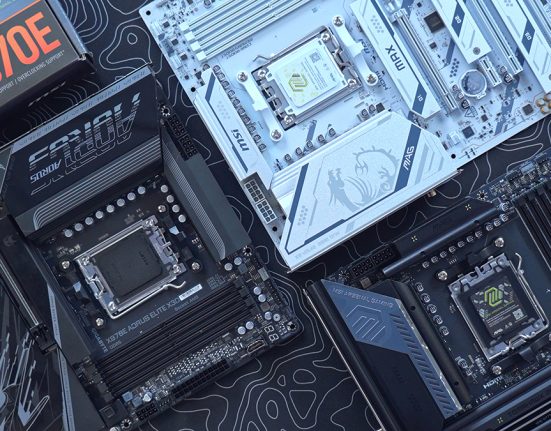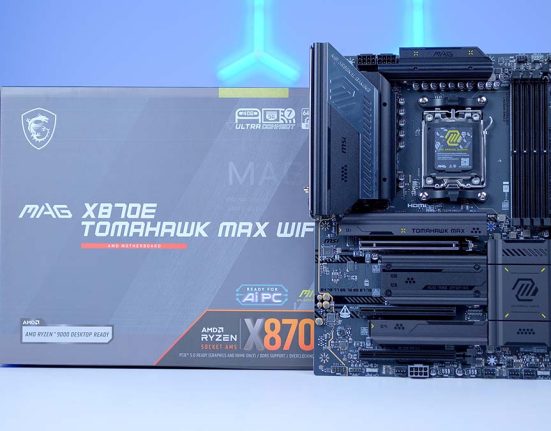Determining which CPU is the best to buy for a PC build can be a hard decision. With a vast range of options from both AMD and Intel and a considerable amount of factors to consider, such as core counts, clock speeds, and overclocking capability, finding the right CPU that strikes a perfect balance of performance and pricing is like trying to find a needle in a haystack.
To simplify this decision, we’ve compiled this buyers guide, which covers the best CPUs to buy. After putting many different processors through the wringer in a gauntlet of gaming and synthetic benchmarks, we’ve determined the best processors by analysing their specs, performance, and value.
The Best Intel CPUs
1. Intel Core i5-14400F

The Intel Core i5-14400F is an excellent CPU geared towards budget PC builds. This 14th-generation processor has ten cores and 16 threads at a boost clock speed of 4.7GHz. Despite not having the most substantial clock speeds, the Core i5-14400F can handle 1080p gaming and has decent legs at 1440p when paired with the right graphics card.
Regarding core counts, the Core i5-14400F is one of the best CPUs compared to similarly priced Ryzen 7000 processors. The increased number of cores gives the Core i5-14400F longevity in more challenging threaded workloads, making it an excellent option for those looking to do light content creation work. In addition, the efficiency cores of this CPU help keep power draw and temperatures to a minimum during gaming and day-to-day usage.
| Key Specs | Intel Core i5-14400F |
|---|---|
| Core Count | 10 |
| Thread Count | 16 |
| Base Clock Speed | 3.5GHz |
| Boost Clock Speed | 4.7GHz |
| Max Cache | 29.5MB |
| Default TDP | 65W |
| CPU Socket | LGA1700 |
| Overclockable | No |
The one major caveat to consider when picking up this CPU is its gaming performance compared to other processors. While the Core i5-14400F offers a strong showing across 1080p and 1440p, its boost clock speed lets it down at higher resolutions and in some more strenuous titles. CPUs like the Ryzen 5 7600 or 7600X are solid alternatives for those who need a dedicated budget gaming CPU.


Suggested Article: Best Motherboards to Buy in 2024
2. Intel Core i5-14600K

The Core i5-14600K received minor performance bonuses over its 13th-Gen counterpart, the Core i5-13600K. These performance enhancements involve a slight increase in the boost and base clock speeds, which improves framerates across AAA and Esports games. Alongside the hardware improvements, the Core i5-14600K has retained a similar price to the Core i5-13600K, making it a highly competitive option for those looking to build a new PC.
Looking at the specs, the Core i5-14600K comes with 14 cores and 20 threads, which is ample for demanding multi-threaded workloads that benefit from higher core counts, such as video editing or 3D modelling. The Core i5-14600K offers a boost clock speed of 5.3GHz, a substantial upgrade from the Core i5-14400F, resulting in better performance at 1440p and 4K resolutions.
| Key Specs | Intel Core i5-14600K |
|---|---|
| Core Count | 14 |
| Thread Count | 20 |
| Base Clock Speed | 3.5GHz |
| Boost Clock Speed | 5.3GHz |
| Max Cache | 44MB |
| Default TDP | 125W |
| CPU Socket | LGA 1700 |
| Overclockable | Yes |
While the Core i5-14600K is a solid CPU when solely considering performance, it isn’t competitive compared to 12th and 13th-Gen processors. For a fresh PC build, the Core i5-14600K is the go-to option, but those looking to upgrade from an older LGA 1700-based CPU may want to look at alternative processors.


3. Intel Core i7-14700K

Out of the entire 14th-Gen range of CPUs, the Core i7-14700K received the most substantial upgrades compared to its 13th-Gen sibling. The main improvement to the Core i7-14700K is an increase in core counts. The Core i7-13700K came with 16 cores and 24 threads; the Core i7-14700K raised these counts by four, up to 20 and 28, respectively. This uplift provides better performance in threaded workloads, which is ideal for those building an enthusiast-level PC.
While the remainder of the specs have mostly remained the same compared to the Core i7-13700K, the Core i7-14700K has retained a solid boost clock speed that allows this CPU to demolish most games, regardless of the resolution. The Core i7-14700K is also fully overclockable, which will improve performance metrics across games and other applications.
| Key Specs | Intel Core i7-14700K |
|---|---|
| Core Count | 20 |
| Thread Count | 28 |
| Base Clock Speed | 4.3GHz |
| Boost Clock Speed | 5.6GHz |
| Max Cache | 61MB |
| Default TDP | 125W |
| CPU Socket | LGA1700 |
| Overclockable | Yes |
Unfortunately, high thermal output is the Core i7-14700K’s biggest weakness. It is one of the hottest CPUs on the market and requires a 240mm liquid cooler as a minimum to keep temperatures under control, which will increase your overall build cost.


Best AMD CPUs
4. AMD Ryzen 5 7600

Moving over to Team Red, we’ve picked out the Ryzen 5 7600 as one of the best AMD CPUs to buy. Due to its exceptional single-core performance, the AMD Ryzen 5 7600 is a substantial competitor in the budget CPU space. Because of the low power budget and fewer cores generating heat, the Ryzen 5 7600 can sustain its high 5.1GHz boost clock speed across games and multi-core workloads.
This consistent boost clock speed results in the Ryzen 5 7600 outperforming most budget CPUs at high resolutions. This CPU is capable of 1080p and 1440p gaming and has decent legs at 4K. Furthermore, the AMD Ryzen 5 7600 is one of the most affordable Ryzen 7000 processors, sitting at $200 at the time of writing.
| Key Specs | AMD Ryzen 5 7600 |
|---|---|
| Core Count | 6 |
| Thread Count | 12 |
| Base Clock Speed | 3.8GHz |
| Boost Clock Speed | 5.1GHz |
| Max Cache | 38MB |
| Default TDP | 65W |
| CPU Socket | AM5 |
| Overclockable | No |
The only major caveat with the Ryzen 5 7600 is its multi-core performance. While the six cores and 12 threads are enough to handle some less demanding threaded workloads, a CPU like the Core i5-14400F is more equipped to handle multi-core applications.


5. AMD Ryzen 7 7800X3D

The AMD Ryzen 7 7800X3D is one of the most impressive Ryzen 7000 CPUs, striking an excellent balance between pricing and performance. It utilises AMD’s proprietary 3D V-Cache technology, which layers a particular type of cache on top of the CPU to read, write, and execute instructions much quicker. The result of using this cache is that the Ryzen 7 7800X3D thrives in demanding AAA games and Esports titles.
Because games have so many small instructions that need to be handled within a small timeframe, the 3D V-Cache can hold these instructions, allowing the CPU to deal with them much quicker than RAM. The 5GHz boost clock speed further enhances the gaming capability of the Ryzen 7 7800X3D, making it an ideal pickup for those building a 4K gaming PC.
| Key Specs | AMD Ryzen 7 7800X3D |
|---|---|
| Core Count | 8 |
| Thread Count | 16 |
| Base Clock Speed | 4.2GHz |
| Boost Clock Speed | 5GHz |
| Max Cache | 104MB |
| Default TDP | 120W |
| CPU Socket | AM5 |
| Overclockable | No |
On the one hand, while the Ryzen 7 7800X3D is an exceptional gaming CPU, it isn’t as strong as competitor CPUs when handling threaded workloads. This CPU comes with eight cores and 16 threads, and while this will be ample for some strenuous applications, processors like the Core i5-14600K or Ryzen 9 7900X are better equipped to deal with more complex workloads.


6. AMD Ryzen 9 7900X

The AMD Ryzen 9 7900X is one of the most powerful AMD CPUs, landing alongside the Ryzen 7 7700X and Ryzen 5 7600X during the initial release of the Ryzen 7000 CPUs. Since then, the Ryzen 9 7900X has faced many price drops, placing it much closer to the $400 mark compared to its original MSRP of $549. Due to this, the Ryzen 9 7900X has only become more sought-after for those building an enthusiast-level PC.
Regarding specs and performance, the Ryzen 9 7900X has 12 cores and 24 threads, which is ample for demanding multi-threaded applications. This CPU also has a 4.7GHz base speed, which clocks up to 5.6GHz when boosting, resulting in excellent gaming performance at 1440p and 4K. Performance metrics can be pushed further with overclocking, as the Ryzen 9 7900X has a fully unlocked core multiplier.
| Key Specs | AMD Ryzen 9 7900X |
|---|---|
| Core Count | 12 |
| Thread Count | 24 |
| Base Clock Speed | 4.7GHz |
| Boost Clock Speed | 5.6GHz |
| Max Cache | 76MB |
| Default TDP | 170W |
| CPU Socket | AM5 |
| Overclockable | Yes |
Unfortunately, thermals are not a strong point of the Ryzen 9 7900X. Due to the boosting behaviour of Ryzen 7000 CPUs, temperatures surge to provide the processor with more headroom to boost. Because of this, we recommend picking up a solid 240mm liquid cooler or better to ensure thermals stay under control.


How We Test the Best CPUs
We benchmark every CPU we have to provide the best CPU recommendations possible. Each processor undergoes rigorous testing and evaluation in various gaming benchmarks and synthetic applications like CPU-Z and 3D Mark. We use these benchmarks to gather data, which is then analysed to assess whether each CPU is worth picking up compared to the rest of the market. We consider various factors besides performance, such as pricing, efficiency, and thermals.
For more information on the methods used to determine our recommendations, look at our full breakdown of How We test CPUs.
Frequently Asked Questions
How Many Cores Do I Need for Gaming?
Most games will only ever use two to four cores for gaming, but having more than four cores can be beneficial for background applications like Discord or Spotify.
Do I Need DDR4 or DDR5 RAM?
While AMD Ryzen 7000 systems are restricted to DDR5, Intel users can choose between DDR4 or DDR5 RAM.
How Do I Know If My CPU Is Overclockable?
Overclockable Intel CPUs have a ‘K’ at the end of the processor name, while overclockable AMD CPUs have an ‘X’ at the end of the name.


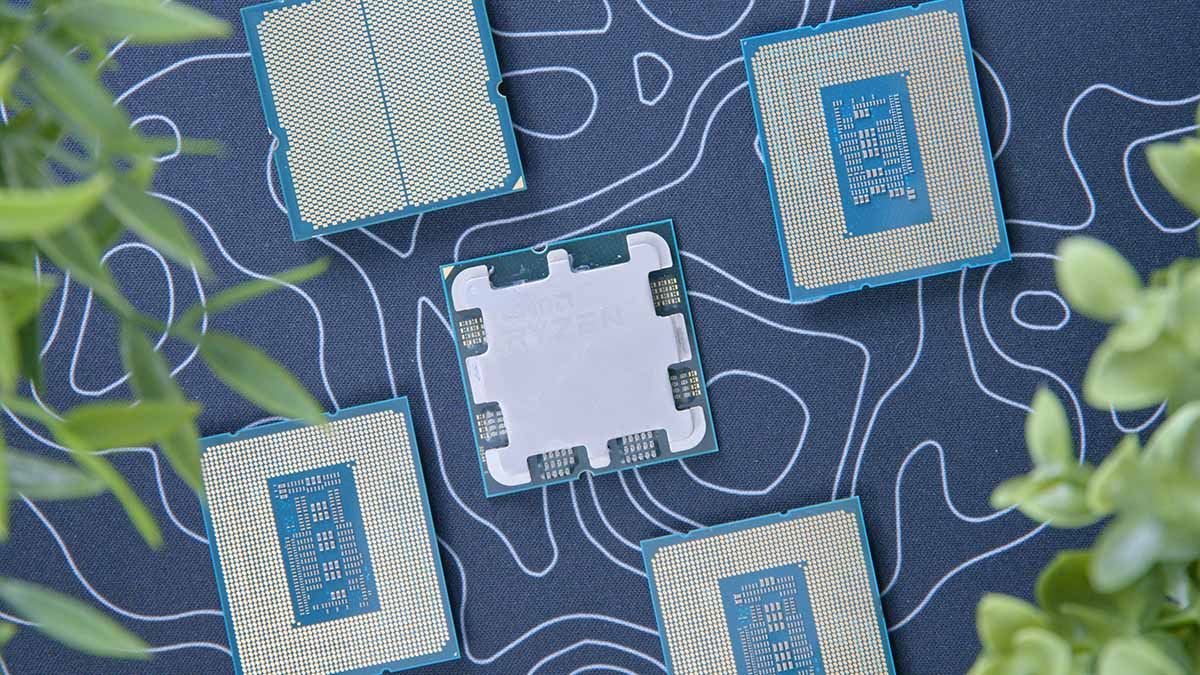
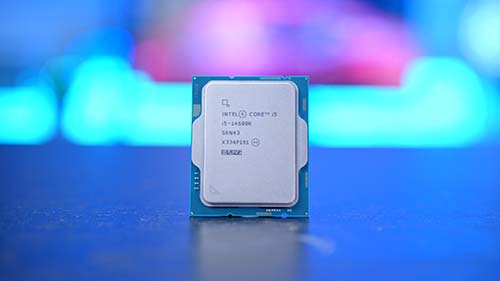
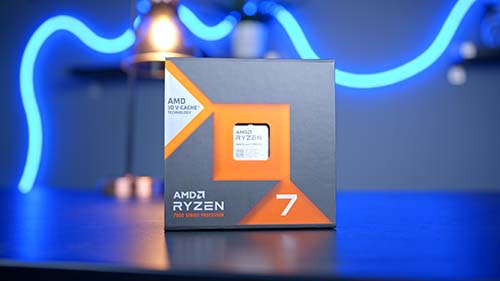






![FI_[DM89] Phanteks Evolv + AORUS 5090 9850X3D Gallery (8)](https://geekawhat.com/wp-content/uploads/2026/02/FI_DM89-Phanteks-Evolv-AORUS-5090-9850X3D-Gallery-8-551x431.jpg)
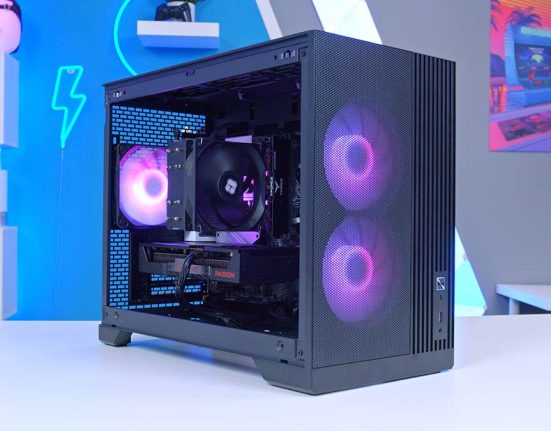
![FI_[DM87] HAVN BF & RTX 5090 Build](https://geekawhat.com/wp-content/uploads/2026/01/FI_DM87-HAVN-BF-RTX-5090-Build-551x431.jpg)
![FI_[DM86] Montech King 45 Pro + RX 9070](https://geekawhat.com/wp-content/uploads/2026/01/FI_DM86-Montech-King-45-Pro-RX-9070-551x431.jpg)
